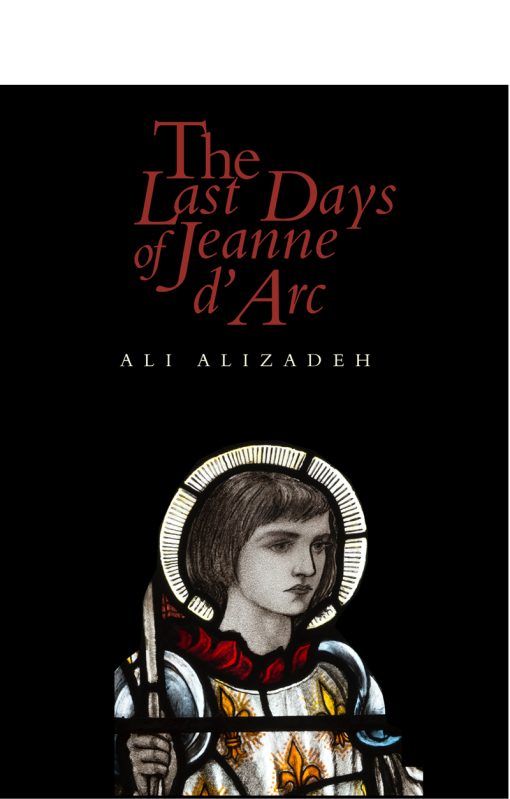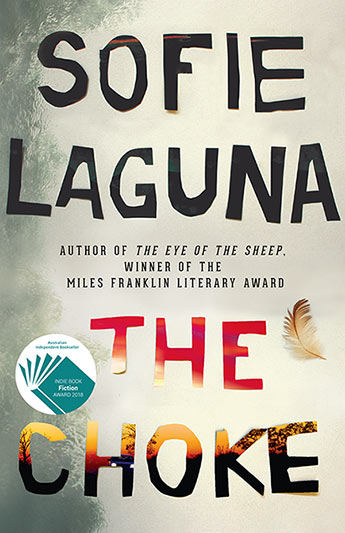 Perhaps the cover says it all? Yes, you can begin to judge this particular book by its cover because inside and throughout all those white pages a hurricane is at work endeavouring to yank everything of life’s rationalizations into shards of disbelief.
Perhaps the cover says it all? Yes, you can begin to judge this particular book by its cover because inside and throughout all those white pages a hurricane is at work endeavouring to yank everything of life’s rationalizations into shards of disbelief.
Category: Literary Fiction Reviews
Interview with Jessica Townsend
Jessica Townsend, the author of Nevermoor: the Trials of Morrigan Crow drops by to read from and chat about her book, which has been had the biggest children’s debut in the Australian market since records began. We talk about the book’s outrageous…
A review of Three Nations Anthology edited by Valerie Lawson
 At the end of “Turtle Island Turtle Rattle”, author Sarah Xerar Murphy writes, “If we cannot find a way to welcome and treat fairly with the stranger, how will we ever find our own way home?”It would be a good thing if there were more books like Three Nations Anthology, to highlight things that human beings have in common
At the end of “Turtle Island Turtle Rattle”, author Sarah Xerar Murphy writes, “If we cannot find a way to welcome and treat fairly with the stranger, how will we ever find our own way home?”It would be a good thing if there were more books like Three Nations Anthology, to highlight things that human beings have in common
A review of The Last Days of Jeanne d’Arc by Ali Alizadeh
 The facts are engaging enough as a history, but Alizadeh’s portrait of a young women in love, coupled with his exploration of the patriarchal, uncertain nature of both historical account and memory (“Or does she?”) takes this story to a new level. Alizadeh’s Jeanne allows for the contradictions in the varied voices that are both inside and outside of his subject and also calls attention to the fact that narrative is something that is constructed rather than something inherent.
The facts are engaging enough as a history, but Alizadeh’s portrait of a young women in love, coupled with his exploration of the patriarchal, uncertain nature of both historical account and memory (“Or does she?”) takes this story to a new level. Alizadeh’s Jeanne allows for the contradictions in the varied voices that are both inside and outside of his subject and also calls attention to the fact that narrative is something that is constructed rather than something inherent.
A review of That Stubborn Seed of Hope by Brian Falkner
 With great writing skill Brian Falkner uses simple but effective language to continue the exploration of human emotions throughout the book. Some of his stories are sad, some quite dark and one or two almost funny but at the turn of each page the reader feels a tugging of the heartstrings, or worse, something delving into the mind stirring up those repressed feelings that nobody wants to talk about.
With great writing skill Brian Falkner uses simple but effective language to continue the exploration of human emotions throughout the book. Some of his stories are sad, some quite dark and one or two almost funny but at the turn of each page the reader feels a tugging of the heartstrings, or worse, something delving into the mind stirring up those repressed feelings that nobody wants to talk about.
A review of The Choke by Sofie Laguna
 As has become something of a trademark for Laguna, Justine’s voice forms the narrative backdrop for the book. It’s an extraordinary combination of naïve, descriptive, and poetically dense, driving the reader through a story often harrowing and dark, but always with a sense of discovery.
As has become something of a trademark for Laguna, Justine’s voice forms the narrative backdrop for the book. It’s an extraordinary combination of naïve, descriptive, and poetically dense, driving the reader through a story often harrowing and dark, but always with a sense of discovery.
Gerry Orz talks about Lucky or Not Here I Come
Gerry Orz is an award winning actor, director, producer, youth activist, and author of the book Lucky or Not, Here I come, released this month. He drops by to read from Lucky or Not Here I Come and to discuss his inspiration…
A review of Z213: EXIT by Dimitris Lyacos
 Dimitris Lyacos’ Z213: EXIT is a revelation. A masterpiece. Distinctly postmodern yet entirely unclassifiable, it is everything and nothing all at once. Despite the myriad references to literature, it is entirely new – I have never read anything like it, and this stunning translation is truly head-spinning.
Dimitris Lyacos’ Z213: EXIT is a revelation. A masterpiece. Distinctly postmodern yet entirely unclassifiable, it is everything and nothing all at once. Despite the myriad references to literature, it is entirely new – I have never read anything like it, and this stunning translation is truly head-spinning.
A review of Datsunland by Stephen Orr
 This selection of short stories concluding with the major work “Datsunland” is beautifully written by a literary craftsman. They take the reader through and within the landscape of South Australia’s unique ecosystem, into places tinged and contaminated with saturnine and fateful conclusions. As I searched through the pages I found myself trapped within a boiled down distillation of this state’s home-style miseries and heartbreaks.
This selection of short stories concluding with the major work “Datsunland” is beautifully written by a literary craftsman. They take the reader through and within the landscape of South Australia’s unique ecosystem, into places tinged and contaminated with saturnine and fateful conclusions. As I searched through the pages I found myself trapped within a boiled down distillation of this state’s home-style miseries and heartbreaks.
Veracity and Transformation: A Review of Grief Cottage by Gail Godwin
 The book is wonderfully informed by multiple metaphorical depictions of our inner and outer struggles. Young Marcus loses his mother, his only parent, and goes to live with his eccentric and spiritually bruised great Aunt Charlotte on a small island in South Carolina at the beginning of the summer. Aunt Charlotte has past wounds that haunt her, rendering her a reclusive but renowned local painter.
The book is wonderfully informed by multiple metaphorical depictions of our inner and outer struggles. Young Marcus loses his mother, his only parent, and goes to live with his eccentric and spiritually bruised great Aunt Charlotte on a small island in South Carolina at the beginning of the summer. Aunt Charlotte has past wounds that haunt her, rendering her a reclusive but renowned local painter.